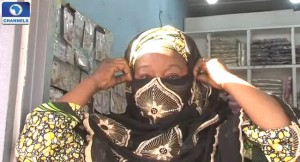
Justice Amina Augie, who led the three-man panel told the applicants – two 15-year old girls and the Registered Trustees of the Muslim Society of Nigeria (MSSN) – that the matter was a constitutional one.
Justice Augie, in her response to an observation by the applicant's counsel, Chief Gani Adetola-Kazeem (SAN) said, it is also "a very sensitive matter that will most likely still get to the Supreme Court."
According to her "all 3 justices of the panel were Muslims and if they went ahead to hear the appeal, it could raise issues of bias".
The court then directed the applicants to write to the President of the Court of Appeal for a five-man panel to be appointed to hear it.
On October 17, 2014, Justice Modupe Onyeabor of a Lagos High Court sitting in Ikeja had dismissed the suit instituted against the Lagos State Government by the two applicants (who were then 12-year-olds) under the aegis of the MSSN, Lagos State Area Unit.
The government had banned the use of Hijab arguing that it was not part of the approved school uniform for pupils.
Following the ban, the students filed the suit on May 27, 2013, seeking redress.
They asked the court to declare the ban a violation of their rights to freedom of thought, religion and education.
In her judgment, Justice Onyeabor held that the prohibition of the wearing of Hijab over school uniforms within and outside the premises of public schools was not discriminatory.
According to her, the ban does not violate Sections 38 and 42 of the 1999 Constitution as claimed by the plaintiffs.
The Judge also said Section 10 of the Constitution made Nigeria a secular state and that government must maintain neutrality at all times.
Justice Onyeabor held that the government had a duty to preserve the secular nature of the institutions concerned as argued by the then Lagos State Solicitor-General, Mr Lawal Pedro (SAN).
She noted that since the public schools were funded by the government, the government was competent to issue dress codes and other guidelines to the students.
According to her, the use of school uniforms engenders uniformity and encourages students to pursue their mutual academic aspirations without recourse to religious or any other affiliations.
The Judge observed that the uniformity sought by the government in the issuance of the dress code would be destroyed, should the prayers of the plaintiffs be granted.
Source ↔ Download Free Music










